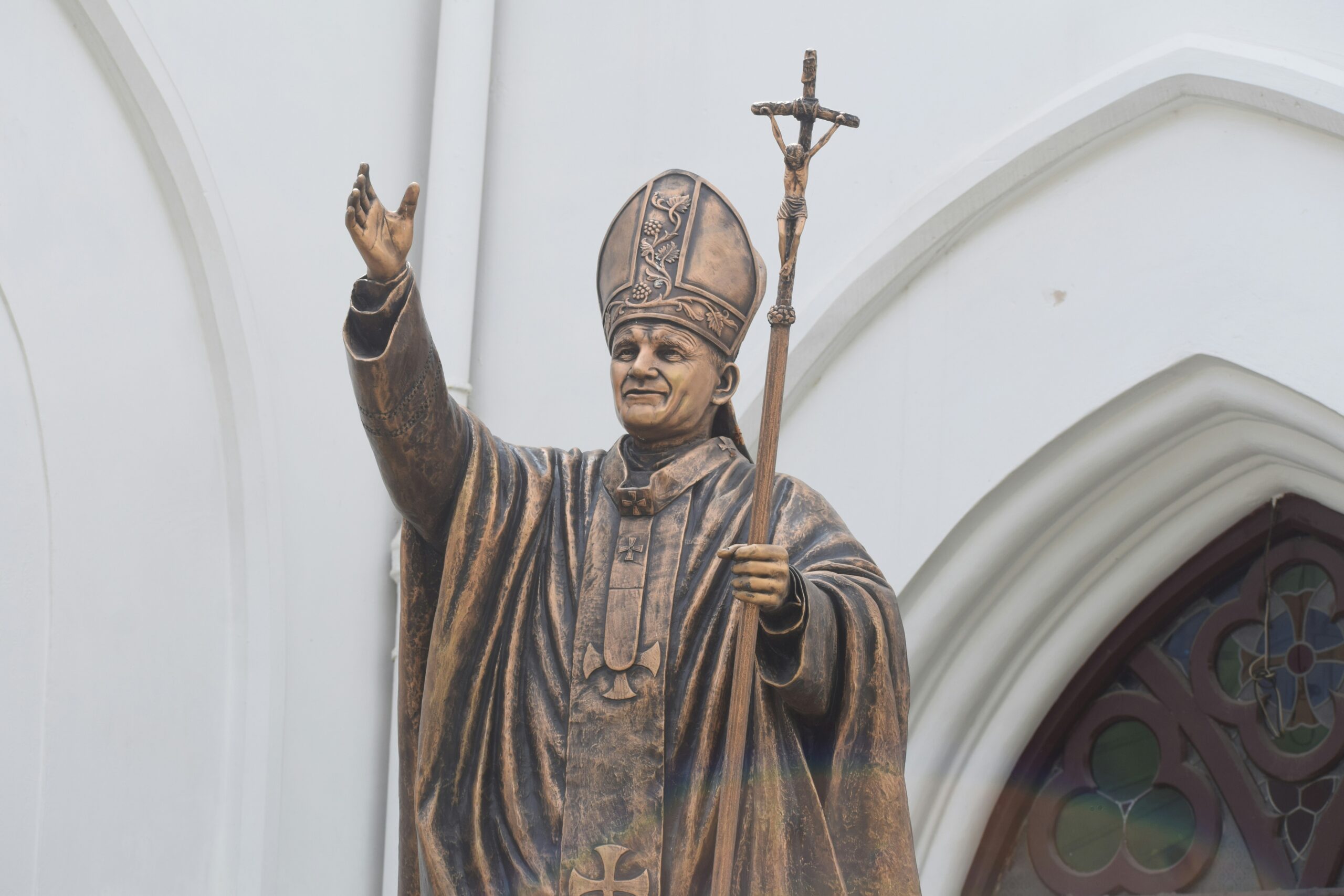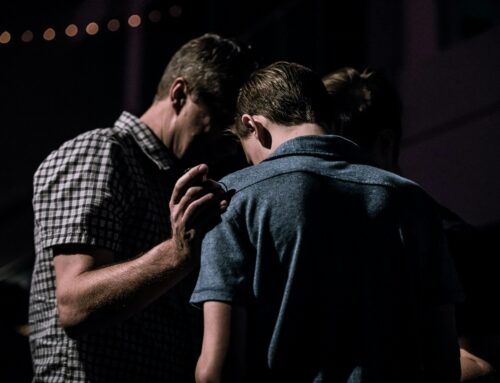The Theology of the Body, a series of teachings by Pope John Paul II, has captivated and inspired Catholics and non-Catholics alike since its inception. This body of work, consisting of 129 catecheses delivered between 1979 and 1984, offers a profound reflection on the meaning of human life, love, and sexuality. Yet, despite its significance, many people still have questions about this complex and transformative teaching. In this blog post, we aim to address some of the common questions and misconceptions surrounding the Theology of the Body.
1. What is the Theology of the Body (TOB)?
The Theology of the Body is a series of lectures given by Pope John Paul II during his Wednesday audiences in St. Peter’s Square and the Paul VI Audience Hall between September 5, 1979, and November 28, 1984. These teachings were a deep dive into the human person and human sexuality, exploring topics such as the meaning of the body, the nature of love, and the purpose of marriage.
The Theology of the Body, often abbreviated as TOB, represents Pope John Paul II’s profound and comprehensive reflection on the human person, human sexuality, and the meaning of life and love. These teachings delve into the core aspects of what it means to be human, created in the image and likeness of God. John Paul II sought to address the modern challenges and misunderstandings surrounding human sexuality, emphasizing its deep connection to the human person’s spiritual, emotional, and physical dimensions. Through his lectures, he explored the intrinsic dignity of the body, the significance of sexual difference, the purpose of marriage as a sacrament, and the call to love as self-gift. The Theology of the Body is not merely a theological treatise but a profound invitation to rediscover the beauty and purpose of human life and relationships in light of God’s plan for humanity.
John Paul II’s Theology of the Body offers a holistic view of human existence, presenting a compelling vision of how individuals can live authentically and purposefully. It addresses contemporary issues such as the objectification of the body, the distortion of sexuality, and the breakdown of the family, offering profound insights rooted in Scripture and tradition. At its core, the Theology of the Body invites individuals to embrace their identity as beloved children of God, called to love and communion. It emphasizes the importance of respecting the dignity of every human person, valuing the gift of sexuality, and cultivating relationships based on selfless love and mutual respect. Through his teachings, John Paul II invites believers to see the body not as a source of shame or temptation, but as a sacred vessel through which they can express their love for God and others.
2. What are the key themes of the Theology of the Body?
The Theology of the Body, as articulated by Pope John Paul II, encompasses a profound and multifaceted view of human existence, particularly in relation to the body, sexuality, and interpersonal relationships.
The Sacramentality of the Body
Pope John Paul II teaches that the body is not just a physical entity but also a sacred sign, revealing spiritual truths about God and humanity. This view contrasts with the secular notion that the body is purely material and devoid of deeper meaning. By understanding the body as a sacrament, we are called to treat our bodies and the bodies of others with reverence, recognizing them as vessels of God’s love and presence in the world. This perspective challenges us to reject attitudes and behaviors that objectify or demean the body, instead embracing a holistic view of human nature that honors the body’s role in our spiritual lives.
The Dignity of the Human Person
Central to the Theology of the Body is the concept of the human person’s inherent dignity. This dignity is not contingent upon external factors such as wealth, status, or achievements but is rooted in our creation in the image and likeness of God. This teaching has profound implications for how we view ourselves and others, calling us to respect and honor the dignity of every person, regardless of their background or circumstances. It also serves as the foundation for Catholic social teaching, which emphasizes the inherent worth of every individual and the importance of promoting the common good.
Complementarity of the Sexes
John Paul II highlights the complementary nature of men and women, affirming their equal dignity while recognizing their differences. This view rejects the notion of gender as a social construct and instead emphasizes the unique gifts and roles that men and women bring to relationships and society. By embracing their complementary natures, men and women can work together harmoniously, each contributing their unique strengths for the betterment of society. This teaching has important implications for understanding marriage and family life, emphasizing the importance of mutual respect, collaboration, and self-giving love between spouses.
The Meaning of Human Sexuality
The Theology of the Body offers a profound reflection on the nature and purpose of human sexuality. It teaches that sexuality is a gift from God, intended to be a source of unity and love between spouses. This view contrasts with the prevalent cultural attitudes that often reduce sexuality to a mere physical act or commodity. By understanding sexuality in light of its unitive and procreative aspects, we are called to approach it with reverence and responsibility, recognizing its potential for both physical and spiritual union between spouses.
In summary, the key themes of the Theology of the Body offer a holistic and profound vision of human nature and relationships. They challenge us to view ourselves and others with dignity and respect, to embrace our God-given differences, and to approach sexuality with reverence and responsibility. By incorporating these teachings into our lives, we can deepen our understanding of what it means to be human and live in harmony with God’s plan for us.
3. How does the Theology of the Body relate to everyday life?
The Theology of the Body offers a transformative perspective on everyday life, guiding believers to integrate their faith into their daily actions and relationships. By emphasizing the sacredness of the human body, this teaching calls individuals to treat their bodies with reverence and care, viewing them not as objects of shame or exploitation but as temples of the Holy Spirit. This perspective challenges cultural norms that promote a distorted view of the body and sexuality, encouraging believers to cultivate a healthy and positive relationship with their bodies.
Furthermore, the Theology of the Body invites individuals to reexamine their attitudes towards sexuality, viewing it as a gift from God intended for the expression of love and unity within the context of marriage. This teaching emphasizes the importance of chastity and purity, encouraging believers to approach sexuality with respect and reverence. By embracing these values, individuals can cultivate deeper and more meaningful relationships based on mutual love and respect.
Moreover, the Theology of the Body calls believers to see themselves and others as beloved children of God, worthy of love and respect. This perspective challenges individuals to treat others with kindness, compassion, and dignity, recognizing the inherent worth of every person. By embracing this view, individuals can foster a more loving and harmonious society, rooted in the values of the Gospel.
In essence, the Theology of the Body offers a holistic and transformative vision of human life, inviting believers to integrate their faith into every aspect of their lives. By embracing the teachings of the Theology of the Body, individuals can cultivate a deeper relationship with God, a healthier view of themselves and their bodies, and more loving and authentic relationships with others.
4. Is the Theology of the Body only for married couples?
The Theology of the Body is not exclusively for married couples but is relevant to all individuals, regardless of their marital status. While much of John Paul II’s teachings on human sexuality and relationships are framed within the context of marriage, the underlying principles apply to everyone, regardless of their state in life. Single individuals can benefit from the Theology of the Body by understanding their own dignity and worth as individuals created in the image and likeness of God. It offers insights into the meaning of human existence, the nature of love, and the importance of self-giving in relationships.
Likewise, consecrated individuals, such as priests, nuns, and monks, can also find relevance in the Theology of the Body. While they may not be called to marriage, they are called to a life of celibacy, which is also a form of self-giving love. The Theology of the Body can help them understand the deeper meaning of their vocation and the value of their celibacy in their service to God and others.
Overall, the Theology of the Body is a comprehensive and inclusive teaching that speaks to the universal human experience. Its insights into human nature, relationships, and sexuality are relevant to all individuals, regardless of their state in life, and can help them live more authentically and in accordance with God’s plan for their lives.
5. How can I learn more about the Theology of the Body?
There are many resources available for those interested in learning more about the Theology of the Body. The Theology of the Body Institute offers online courses to help you grow deeper in your knowledge of the human person. Catholic radio is also an excellent option to learn more about Theology of the Body and how to authentically live our Catholic faith.
The Theology of the Body is a rich and transformative teaching that offers profound insights into the meaning of human life, love, and sexuality. By exploring its teachings and applying them to our lives, we can deepen our understanding of ourselves, our relationships, and our faith.





Leave A Comment